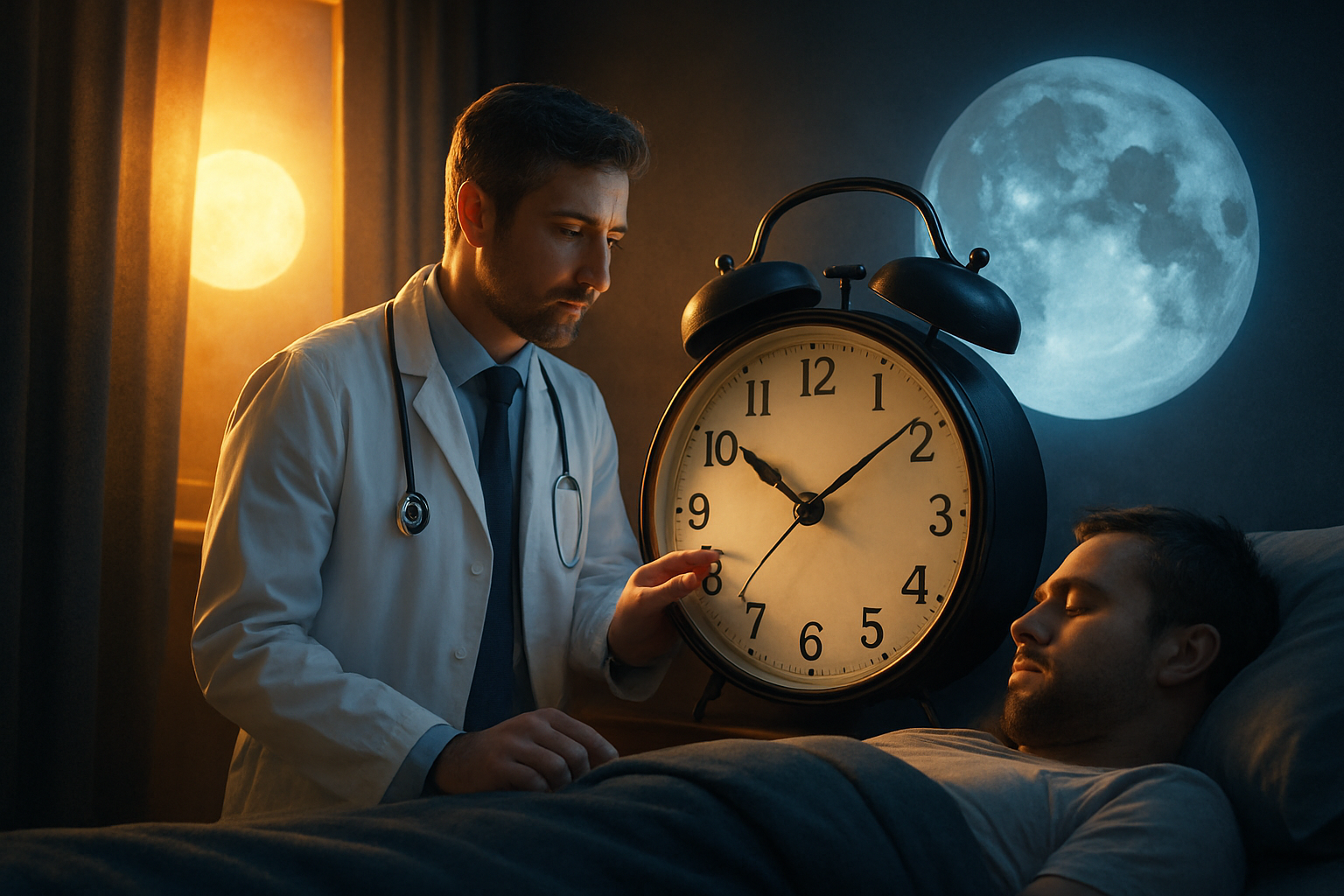Step-by-Step Guide to Sleep Apnea Treatment Options: Exploring Natural Remedies, Devices, and New Solutions (2025)
Sleep apnea is a common yet potentially serious sleep disorder affecting millions worldwide. This comprehensive guide explores the latest treatment options, from natural remedies to cutting-edge medical devices, providing valuable insights for those seeking effective solutions. Whether you're newly diagnosed or looking for alternative treatments, this article offers a step-by-step approach to managing sleep apnea and improving your overall health and well-being.

What are the early signs and symptoms of sleep apnea?
Recognizing the early signs and symptoms of sleep apnea is crucial for timely intervention and treatment. Common indicators include loud snoring, gasping or choking during sleep, excessive daytime sleepiness, morning headaches, and difficulty concentrating. Other symptoms may include mood changes, irritability, and a dry mouth or sore throat upon waking. If you or a loved one experience these symptoms, it’s essential to consult a healthcare professional for proper evaluation and diagnosis.
How can natural remedies and lifestyle changes help manage sleep apnea?
Exploring natural remedies and lifestyle adjustments for sleep apnea can be an effective first step in managing the condition. Weight loss is often recommended, as excess weight can contribute to airway obstruction. Regular exercise, particularly yoga and throat exercises, can strengthen the muscles around the airway. Positional therapy, such as sleeping on your side instead of your back, can also help reduce symptoms. Additionally, avoiding alcohol and sedatives before bedtime, maintaining a consistent sleep schedule, and using a humidifier can alleviate some sleep apnea symptoms.
What medical devices and technological innovations are available for sleep apnea management?
Medical devices and technological innovations in sleep apnea management have significantly advanced in recent years. The most common and effective treatment remains Continuous Positive Airway Pressure (CPAP) therapy, which delivers a steady stream of air to keep the airway open during sleep. Newer CPAP machines are more comfortable, quieter, and come with features like built-in humidifiers and data tracking capabilities. Other options include Bilevel Positive Airway Pressure (BiPAP) devices, which provide two levels of air pressure, and Adaptive Servo-Ventilation (ASV) for complex sleep apnea cases.
What are the potential health risks and complications of untreated sleep apnea?
Evaluating sleep apnea risks and potential health complications is crucial for understanding the importance of treatment. Untreated sleep apnea can lead to serious health issues, including high blood pressure, heart disease, stroke, and type 2 diabetes. It can also increase the risk of accidents due to daytime sleepiness and impair cognitive function, affecting work performance and overall quality of life. Long-term sleep deprivation caused by sleep apnea can contribute to depression, anxiety, and other mental health issues.
What emerging treatment solutions are experts recommending for sleep apnea?
Insights from experts on emerging sleep apnea treatment solutions reveal promising new approaches. Hypoglossal nerve stimulation, which involves implanting a small device to stimulate the nerve controlling tongue movement, has shown effectiveness for some patients. Oral appliances, such as mandibular advancement devices, are becoming more sophisticated and customizable. Researchers are also exploring pharmacological treatments targeting the brain’s sleep-wake cycle and muscle tone during sleep. Additionally, personalized medicine approaches using genetic and biomarker data are being developed to tailor treatments more effectively to individual patients.
How do different sleep apnea treatment options compare in terms of effectiveness and cost?
When comparing sleep apnea treatment options, it’s important to consider both effectiveness and cost. Here’s a comparison of some common treatments:
| Treatment Option | Provider | Effectiveness | Cost Estimation |
|---|---|---|---|
| CPAP Therapy | ResMed | High | $500 - $3,000 |
| Oral Appliances | SomnoMed | Moderate | $1,500 - $3,000 |
| Hypoglossal Nerve Stimulation | Inspire Medical Systems | High for select patients | $30,000 - $40,000 |
| Lifestyle Changes | N/A | Varies | Low to no cost |
| Surgery (e.g., UPPP) | Varies by hospital | Moderate to High | $6,000 - $10,000 |
Prices, rates, or cost estimates mentioned in this article are based on the latest available information but may change over time. Independent research is advised before making financial decisions.
CPAP therapy remains the gold standard for treating moderate to severe sleep apnea, offering high effectiveness at a relatively moderate cost. Oral appliances, while less effective for severe cases, can be a good option for mild to moderate sleep apnea and are generally more affordable than CPAP machines. Hypoglossal nerve stimulation, while highly effective for select patients, is the most expensive option and typically reserved for those who cannot tolerate CPAP. Lifestyle changes, such as weight loss and positional therapy, are low-cost options that can be effective for mild cases or as complementary treatments.
In conclusion, managing sleep apnea requires a personalized approach, considering the severity of the condition, individual preferences, and lifestyle factors. From natural remedies to advanced medical devices, there are numerous options available to effectively treat sleep apnea and improve overall health. As research continues to advance, new and innovative solutions are likely to emerge, offering hope for even more effective treatments in the future.
This article is for informational purposes only and should not be considered medical advice. Please consult a qualified healthcare professional for personalized guidance and treatment.




